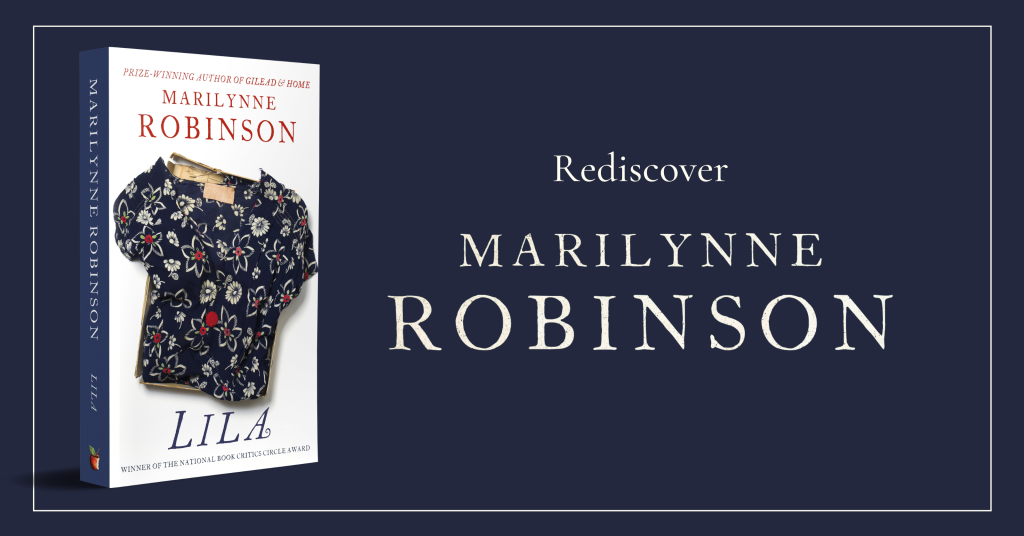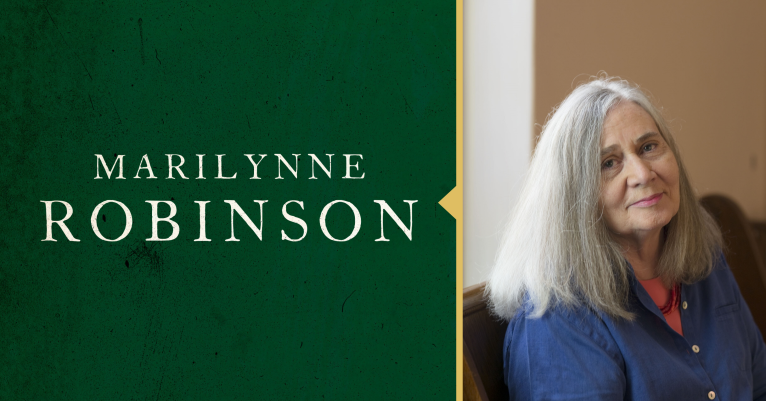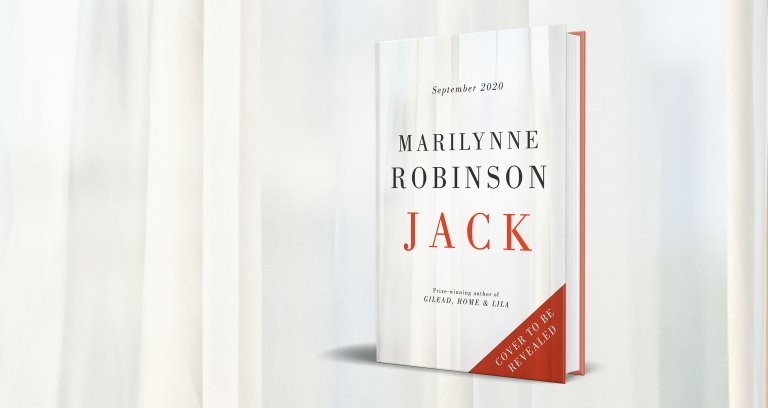Read an extract from Lila by Marilynne Robinson

In anticipation of the release of Jack we’re revisiting the novels where it all began. Read an extract from Lila, winner of the National Book Critics Circle Award.
Lila, homeless and alone after years of roaming the countryside, steps inside a small-town Iowa church-the only available shelter from the rain-and ignites a romance and a debate that will reshape her life. She becomes the wife of a minister and widower, John Ames, and begins a new existence while trying to make sense of the days of suffering that preceded her newfound security.
‘After reading it the world seems more dazzling, fuller of wonder and mystery than it did before, as if you were newly in love.’ SPECTATOR
‘Deeply moving, almost transformative’ SUNDAY TIMES
‘A book that leaves the reader feeling what can only be called exaltation’ INDEPENDENT
1.
The child was just there on the stoop in the dark, hugging herself against the cold, all cried out and nearly sleeping. She couldn’t holler anymore and they didn’t hear her anyway, or they might and that would make things worse. Somebody had shouted, Shut that thing up or I’ll do it! and then a woman grabbed her out from under the table by her arm and pushed her out onto the stoop and shut the door and the cats went under the house. They wouldn’t let her near them anymore because she picked them up by their tails sometimes. Her arms were all over scratches, and the scratches stung. She had crawled under the house to find the cats, but even when she did catch one in her hands it struggled harder the harder she held on to it and it bit her, so she let it go. Why you keep pounding at the screen door? Nobody gonna want you around if you act like that. And then the door closed again, and after a while night came. The people inside fought themselves quiet, and it was night for a long time. She was afraid to be under the house, and afraid to be up on the stoop, but if she stayed by the door it might open. There was a moon staring straight at her, and there were sounds in the woods, but she was nearly sleeping when Doll came up the path and found her there like that, miserable as could be, and took her up in her arms and wrapped her into her shawl, and said, “Well, we got no place to go. Where we gonna go?”
If there was anyone in the world the child hated worst, it was Doll. She’d go scrubbing at her face with a wet rag, or she’d be after her hair with a busted comb, trying to get the snarls out. Doll slept at the house most nights, and maybe she paid for it by sweeping up a little. She was the only one who did any sweeping, and she’d be cussing while she did it, Don’t do one damn bit of good, and someone would say, Then leave it be, dammit. There’d be people sleeping right on the floor, in some old mess of quilts and gunnysacks. You wouldn’t know from one day to the next.
When the child stayed under the table they would forget her most of the time. The table was shoved into a corner and they wouldn’t go to the trouble of reaching under to pull her out of there if she kept quiet enough. When Doll came in at night shewould kneel down and spread that shawl over her, but then she left again so early in the morning that the child would feel the shawl slip off and she’d feel colder for the lost warmth of it, and stir, and cuss a little. But there would be hardtack, an apple, something, and a cup of water left there for her when she woke up. Once, there was a kind of toy. It was just a horse chestnut with a bit of cloth over it, tied with a string, and two knots at the sides and two at the bottom, like hands and feet. The child whispered to it and slept with it under her shirt.
Lila would never tell anyone about that time. She knew it would sound very sad, and it wasn’t, really. Doll had taken her up in her arms and wrapped her shawl around her. “You just hush now,” she said. “Don’t go waking folks up.” She settled the child on her hip and carried her into the dark house, stepping as carefully and quietly as she could, and found the bundle she kept in her corner, and then they went out into the chilly dark again, down the steps. The house was rank with sleep night was windy, full of tree sounds. The moon was gone and there was rain, so fine then it was only a tingle on the skin. The child was four or five, long-legged, and Doll couldn’t keep her covered up, but she chafed at her calves with her big, rough hand and brushed the damp from her cheek and her hair. She whispered, “Don’t know what I think I’m doing. Never figured on it. Well, maybe I did. I don’t know. I guess I probly did. This sure ain’t the night for it.” She hitched up her apron to cover the child’s legs and carried her out past the clearing. The door might have opened, and a woman might have called after them, Where you going with that child? and then, after a minute, closed the door again, as if she had done all decency required. “Well,” Doll whispered, “we’ll just have to see.”
The road wasn’t really much more than a path, but Doll had walked it so often in the dark that she stepped over the roots and around the potholes and never paused or stumbled. She could walk quickly when there was no light at all. And she was strong enough that even an awkward burden like a leggy child could rest in her arms almost asleep. Lila knew it couldn’t have been the way she remembered it, as if she were carried along in the wind, and there were arms around her to let her know she was safe, and there was a whisper at her ear to let her know that she shouldn’t be lonely. The whisper said, “I got to find a place to put you down. I got to find a dry place.” And then they sat on the ground, on pine needles, Doll with her back against a tree and the child curled into her lap, against her breast, hearing the beat of her heart, feeling it. Rain fell heavily. Big drops spattered them sometimes. Doll said, “I should have knowed it was coming on rain. And now you got the fever.” But the child just lay against her, hoping to stay where she was, hoping the rain wouldn’t end. Doll may have been the loneliest woman in the world, and she was the loneliest child, and there they were, the two of them together, keeping each other warm in the rain.






